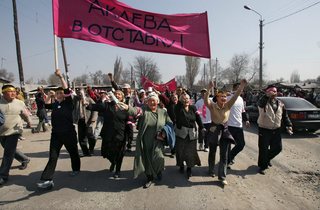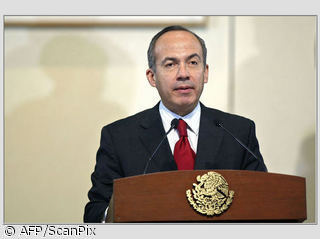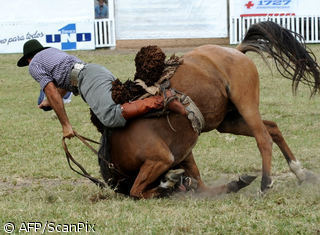Touted by the East German leadership as a barrier against "fascist provocation," the Wall was really an attempt to stop waves of skilled workers and educated people leaving a repressive state
Published:
10 November 2004 y., Wednesday
Touted by the East German leadership as a barrier against "fascist provocation," the Wall was really an attempt to stop waves of skilled workers and educated people leaving a repressive state. Around 3 million fled between 1945 and 1961, when the Wall went up. In time, it became etched in the Western consciousness as a symbol of inhumanity. More than 100 people were picked off by border guards while trying to escape; dozens of others were killed by mines.
However, by November 9, 1989, deep political shifts had prepared the ground for an earthquake. Leader Erich Honecker had been forced to resign and 4 million people had demonstrated for democracy. On that momentous day, the government's spokesman Guenther Schabowski announced that East Germans could go to West Germany if they applied for a visa.
Within minutes, people swarmed around the wall's border posts in what amounted to a siege. At midnight, they broke through to West Germany. That sounded the death knell for the Cold War and set the stage for German reunification a little more than a year later. But 15 years on, a very different kind of mass mobilisation took place. The demonstrations in Leipzig this August highlighted the economic plight of the former East German regions, where unemployment is double that of the western part.
When the old regime collapsed, many skilled workers found themselves on the wrong side of supply-and-demand economics.
Šaltinis:
euronews.net
Copying, publishing, announcing any information from the News.lt portal without written permission of News.lt editorial office is prohibited.
The most popular articles
 Civil unrest in Kyrgyzstan last week left over 70 people dead, more than 1500 injured and over 500 hospitalized.
more »
Civil unrest in Kyrgyzstan last week left over 70 people dead, more than 1500 injured and over 500 hospitalized.
more »
 After lots were drawn, ten winners of Danske Bankas scholarships and one winner of an iPod shuffle player were established.
more »
After lots were drawn, ten winners of Danske Bankas scholarships and one winner of an iPod shuffle player were established.
more »
 The health of Chinese civil rights activist Hu Jia is causing real fears after reports that the winner of the Parliament's 2008 Sakharov human rights prize is ailing with liver disease.
more »
The health of Chinese civil rights activist Hu Jia is causing real fears after reports that the winner of the Parliament's 2008 Sakharov human rights prize is ailing with liver disease.
more »
 Nestled in the northeast plains of India, Bihar is one of the poorest states in the country. Its per capita income is just a fraction of that in other Indian states.
more »
Nestled in the northeast plains of India, Bihar is one of the poorest states in the country. Its per capita income is just a fraction of that in other Indian states.
more »
 One day after a 7.2 magnitude earthquake rattled the Mexico-California border area, Mexico‘s President visits one of the affected areas.
more »
One day after a 7.2 magnitude earthquake rattled the Mexico-California border area, Mexico‘s President visits one of the affected areas.
more »
 Roma communities, the European Union’s largest ethnic minority, continue to face persistent discrimination and segregation.
more »
Roma communities, the European Union’s largest ethnic minority, continue to face persistent discrimination and segregation.
more »
 This the sound of spring for many in Latvia. With a little guidance from their parents, children at the Riga Zoo made bird boxes in anticipation of the returning migrating birds.
more »
This the sound of spring for many in Latvia. With a little guidance from their parents, children at the Riga Zoo made bird boxes in anticipation of the returning migrating birds.
more »
 Economic shocks are taking a toll on a population already facing high risks in low-income countries: children.
more »
Economic shocks are taking a toll on a population already facing high risks in low-income countries: children.
more »
 As celebrations for Easter week get under way millions of the faithful will be heading to Churches across Europe to mark the crucifixion and resurrection of Christ.
more »
As celebrations for Easter week get under way millions of the faithful will be heading to Churches across Europe to mark the crucifixion and resurrection of Christ.
more »
 More than 200, 000 riders and their horses are in Uruguay’s capital for South America’s largest rodeo.
more »
More than 200, 000 riders and their horses are in Uruguay’s capital for South America’s largest rodeo.
more »